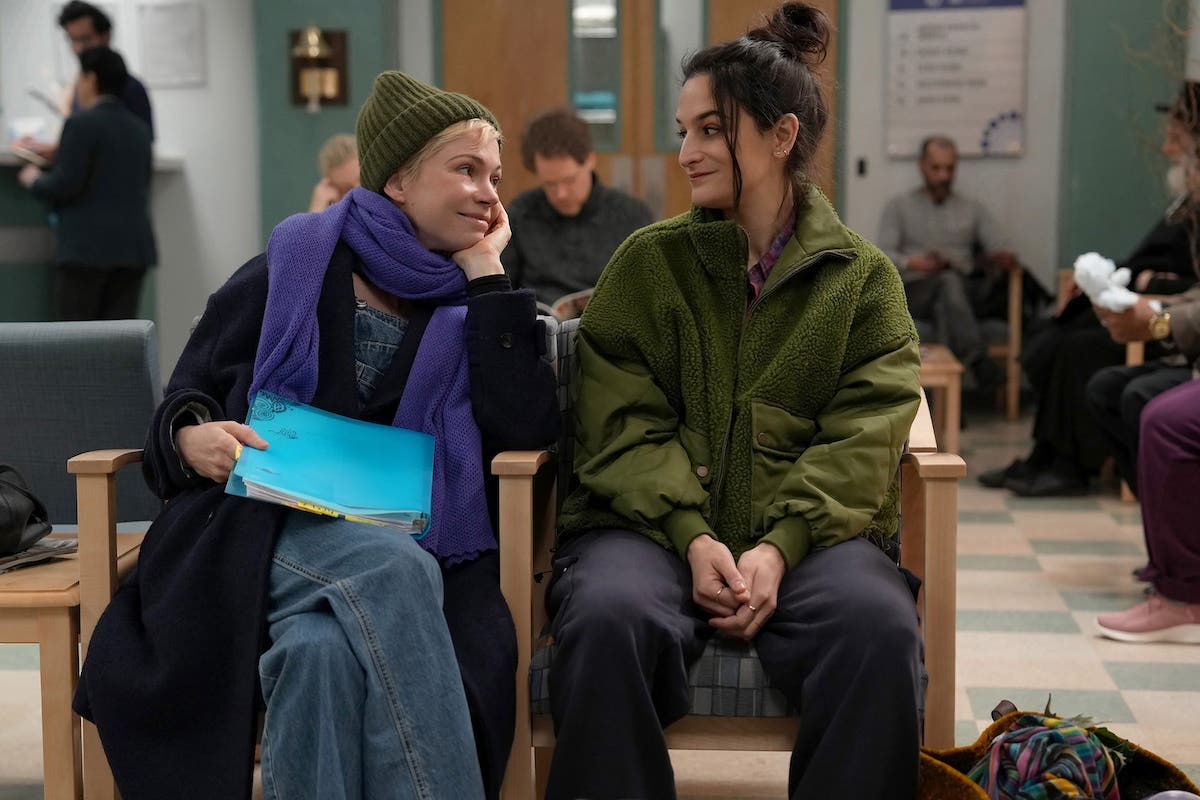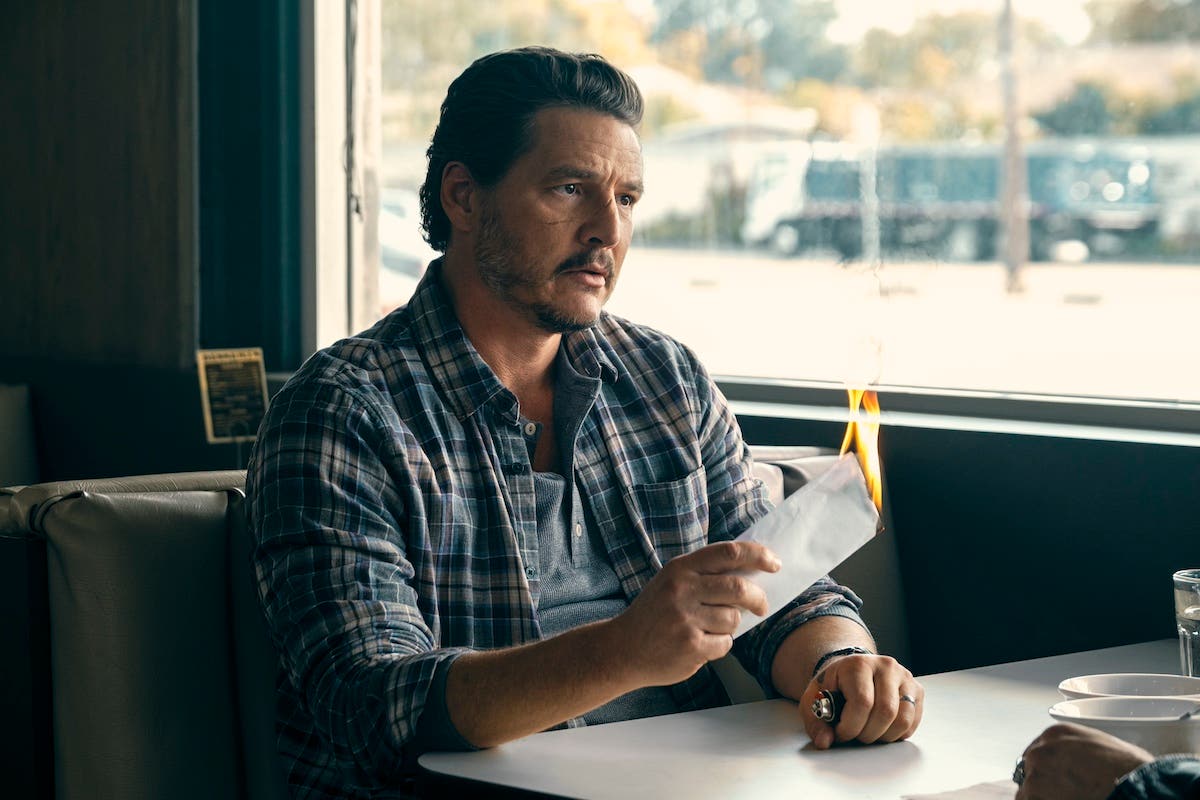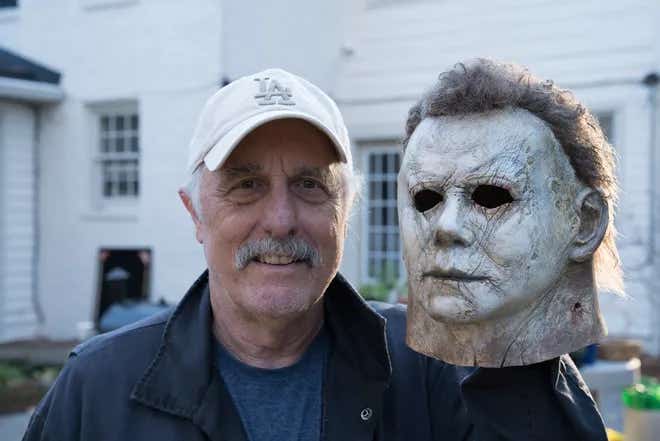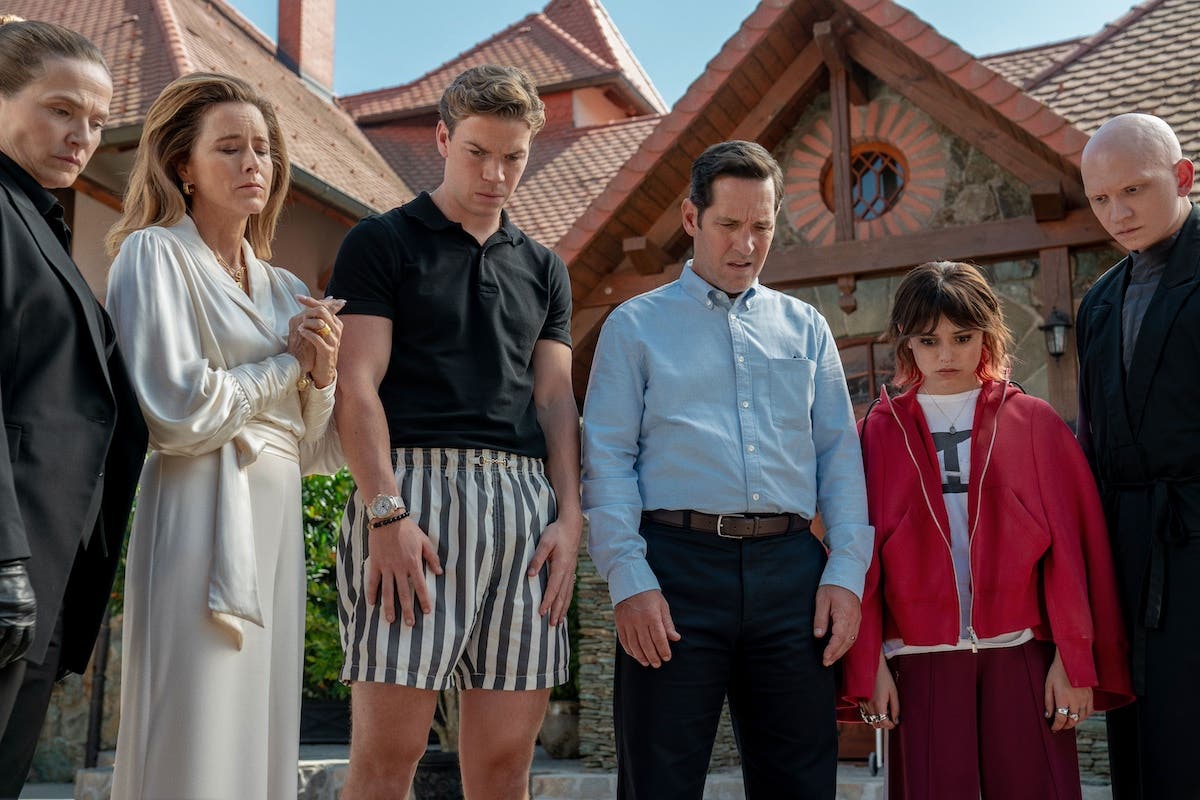Balls of Steel™: American Pickers Road to TV with Show Creator Mike Wolfe Part 1
An interview with show creator and host of ‘American Pickers’, Mike Wolfe, sharing the long journey selling his show to The History Channel. Part 1 of 3.
UPDATE: An entertainment writer, Nicki Swift, wrote a piece, completely misrepresenting this article as "proof" the American Pickers is fake. I assure you, it is not. She pulled quotes out of context and made leaping assumptions that are totally inaccurate. All negotiating between Mike, Frank and my mother took place in real-time and was not preplanned. Neither Mike nor Frank stepped foot on the property prior to the show and did not open those barn doors until the cameras were rolling, nor did anyone on their team.
Jeanne Veillette Bowerman is the Editor of Script magazine and a screenwriter, having written the narrative feature adaptation as well as the 10-hr limited series of the Pulitzer Prize-winning book, Slavery by Another Name, which were honored in the Top 25 Tracking Board Launch Pad Features Competition, CS Expo Finalist, the Second Round of Sundance Episodic Lab, and a PAGE Awards TV Drama Finalist. Follow Jeanne on Twitter @jeannevb.
Last August, American Pickers hit my small town in Upstate New York. Thanks to my sister's promoting of our mom's treasure trove of antiques, hosts Mike Wolfe and Frank Fritz were standing in my parents’ backyard, rummaging through the barns I played in as a child and pulling out goodies.
That’s right, my mama was picked by the pickers.
Never did I imagine all the antiquing trips she dragged us on would lead to her being on The History Channel. In all honesty, I thought she’d end up in antiqueaholic rehab first.
But there we were, after shooting some footage in her barns, sitting around my parents’ pond, eating lunch with the crew. A once-in-a-lifetime experience, especially for my octogenarian parents.
What kind of editor would I be if I didn’t pick Mike’s brain for you as to how he sold this show? I’ve got your back, peeps. And Mike had a tale that was too good to edit down into a smaller post. In fact, this will be a three-parter in all, so stay tuned.
Grab a cup of coffee, get comfortable, and dive into the long journey of how American Pickers finally found a home on The History Channel.
The Early Pitching Years
Being in Iowa, Mike didn’t know anyone in the industry, but he’s a hustler. I suppose you have to be by nature if you’re a lifelong picker. Mike took his natural talents of the gift of gab and the ability to research and started the process of getting his show idea noticed. He did what any good self-pimp would do – put some video footage on his shop’s website, Antique Archeology.
As a picker, he had no illusions of being a filmmaker, but Mike is an outside-the-box thinker. He quickly found someone to help him create video footage of his life as a picker.
“I met this 23-year-old kid from Iowa, Justin, and I would give him my videos, and he’d edit them into three-minute short stories, and I would post them on my website. Justin started this little company called Crazy Eyes Productions. He’s really talented in graphics. He was perfect for me because I was trying to make an antique show that was different than anything anyone had seen before, and he didn’t know anything about antiques. He’d never even seen an antique show. This kid had new, fresh eyes.”
A man from a local PBS station heard what Mike was doing and contacted him.
“I was excited someone was interested. He started editing some of it. But it wasn’t my vision, and when I was completely honest with him about that, he got really mad at me, saying, ‘What do you know… I’ve been in television for 25 years?’ I said, ‘Well, I know this isn’t what I want.’ I had to physically throw him out of my house. It was crazy… and then I was all by myself again”.
The road to selling a show and breaking into television was totally foreign to him. As many of us know, it’s never what you think it’s going to be.
“As far as breaking into the industry, I didn’t even know what that meant. I didn’t know what it would be like if I had a show. All I thought about was the show itself. There was this burning desire in me to be able to do it: To make something no one had ever made before. To put fresh eyes on my world as a picker. To show another side of it. That was everything to me. But at the end of the day, it was all about the people I pick from – to give them a voice and to give the item a voice and showing the relationship there, showing an audience these places still exist and that there’s no such thing as a nobody. Even the smallest thing can have value if there’s a story. Teaching people about the process of that is what I wanted to do. As far as being famous and having a chip in the game and getting into the industry, that never crossed my mind, ever.
Finally! An interested production company
Before moving to Nashville, the story began in Iowa. That’s quite an obstacle, especially seven years ago, before Twitter and social media really exploded. Making connections can happen in the strangest of places.
“I was at a funeral of a friend’s father and ran into my high school buddy. He and I wrestled together in college. He later became the UFC champion. We started talking and discovered we were both trying to pitch shows and shared our ideas. He told me I should come down to his gym because production companies were always there, filming his fighters. I went and gave him the reel I put together, and he gave it to a company called JWM, who at that time were making The History Channel’s number one show, ‘Digging for the Truth’. History was always where I saw the project going, so I was excited to sign with these guys.”
Seemingly, once you have a production company’s backing, you assume you just snagged Willie Wonka’s Golden Ticket. Mike’s initial experience was anything less than golden.
“You have all these views in your mind of how it’s going to go, and then you see how it really goes. There was no crew. It was just me on the road by myself. So, basically, I bought a camera, and I started shooting everything on Mini DV. I would put it on the dashboard and start talking into it. Then I bought a cheap tripod, and I’d stick it in the gravel and film myself. When I was picking people’s barns, like your mother’s barn, I’d hand them the camera, and they would film me talking, and then I would take the camera and do a little interview with them asking about their relationship with these things and how they collected them. To me, the show was always about relationships more than about a value.”
Building a Network
Relationships on air and off take work. To get this show made, Mike was going to have to get creative in building a strong network.
“I’d wake up every day and spend at least two or three hours on the show – making calls, making contacts, and sending emails. There’s so much information at your fingertips now. I would watch shows, see who produced the ones I liked, who wrote them, who was the EP (Executive Producer). I’d look them up online and send them emails directly.”
“When I did sign with the JWM, they pitched the show and everyone passed. They said it was over. I said tell me who passed. They told him their names. Then I would research the person, get their email, and then contact them myself asking why did you turn it down, what did you like about it, and what didn’t you like about it. One of the people was Sara Kozak from The Learning Channel (TLC). It was a process of my learning what I could, even if they gave me only 30 seconds. I’d get something like ‘I loved it but…’ I learned so much during that whole process.”
“But eventually, everybody on cable passed. JWM started going to the low-hanging fruit and started going to satellite. The head dude from Smithsonian called me and said, ‘I love your show. I want to do it, but I don't want to do it with the production company you’re with.’ Ultimately, it didn’t work because of politics. I kind of screwed myself there in a way.”
Being a ballsy writer, I always like to pitch my own work. No one knows it better than me. I asked Mike if he had any regrets not being a part of the early pitch meetings.
“JWM never filmed me, never asked me any questions, they had some guy pitching my show who didn’t even understand it. But you have to realize when to hold them and when to fold them. If I had been in the room back then and in on the pitching process, I probably would have said all the wrong things and would have been maybe a little bit too emotional about it, and I didn’t really understand the business side of things and what the network was actually looking for, or if we could deliver it. So, I’m kind of glad I wasn’t there. I learned a lot.”
American Pickers Takes to the Web
Mike’s contract with JWM was over, and now he was on the yellow-brick road alone again. But like any winding journey, opportunities are out there to be found – if you’re open to new ideas.
“I got a call from Jage Toba, director of network programming for Plum TV. Every screenwriter should know about Plum TV because it’s fucking brilliant. Jage came up with the idea to have a television network to be full of independent films and people who are creative. It’s in eight networks – Nantucket, Miami Beach, Aspen, Vail, and more. The average income of a viewer is half a million dollars. They show a lot of content, so they called me, but I didn’t know who they were. Jage introduced himself and said he’s seen my show on my website, loved it and would love to put it on Plum TV. I asked what kind of deal he was talking about, and he said no money at all, but what we can do is take three or four of my videos and tie them together, create a little 20-minute show. He said, ‘You’re making great stuff, but no one is seeing anything. Do you want us to show it or not?’ I thought if they have that influential of an audience, who the hell knows who’s watching! I was with them for about a year. I would send them new content – the same content I would also put on my own website.”
Enter, the Much-Needed Champion
The deep pockets he hoped for never showed up. Every network in America had passed. Every satellite station passed. Every cable network passed. Most people would have thrown in their dusty tin pan, but not Mike.
“I thought to myself, I’m going to start pitching this thing overseas. I reached out to an agent online, and he was also what they call in Europe, a presenter instead of a host, of an antique show over there. In Europe, antique shows have always been an extremely hot market. ‘Antique Roadshow’ and ‘Cash in the Attic’ came from there. I was just an inch away from signing with him when Sara Kosak from TLC calls me. She was one of the people who I had called asking why do you hate my show, why won’t you carry it? She was the first one who encouraged me… and she was so cool… she didn't know me at all, but she gave me so much of her time. She explained I had a lot of leaves but no tree. The videos that I had were great, but there was no format. Plus the production company had no format. That’s a big open question. People liked me on camera, they like the people I filmed, but I had no show without a format.”
“She had just finished a show with Richard Davis called ‘Flip This House’. She suggested I take the format of that and put it into what I do. Me, naïve as I was, was thinking why hadn’t the production company presented a format? What were they feeling the whole time? I thought this was a creative process, but it wasn’t. I actually said that to them during the pitching process… that we don’t really have a show here. But the production company wanted to show the network raw material so the network would have some real estate that they owned in this thing… and a say in what the show could be. They said the collaboration started with the network and the production company talking about what the show could be.”
“Everything that I’ve learned since then, that’s about a quarter of the way through. Why would you go into a meeting without your guns loaded, your T’s crossed, your I’s dotted and say this is what you’re going to see every week, this is what we can produce, this is the level of the quality it is going to be? TV 101: Tell them what they’re going to see, show them what you just told them, and then tell them what they just saw. All of that – boom, boom, boom. They didn’t do any of that.”
Hindsight is 20/20. I’m sure Mike’s stomach was in knots, realizing his show had been prematurely pitched to all the major networks… TLC, History, Discovery… and now dead. But as I always say, and Mike would agree, every lesson we learn, even those that frustrate the hell out of us, is valuable. He’s a different man than he was when he signed with his first production company – a wiser man.
Scouting a Picker
Mike continued to update his website, put multiple hours in each day researching options, and picking antiques. And then…
“I got a call from Scout Productions (‘Queer Eye for the Straight Guy’). They saw the videos on my website and loved them. As a production company, they’d never taken an idea from outside. Everything they’d done was from the inside… but, they loved this, and wanted to work with me. They said they were going to put something on paper, send it to me and get things started.”
Mike was really excited… until he read the offer.
“They offered me like next to nothing. No creative control. No EP title. No creator title. Nothing. I don’t know shit, but I knew that. I turned it down. They were like, ‘You’re passing on us?’ And I said, yeah, I’m passing. And I walked away. It was one of those things I would either regret the rest of my life or I was going to go beyond it to bigger and better things. But I had to take the risk.”
Risk. Every great career has taken more than few.
It turned out he hadn’t burned a bridge with that company. One of the development guys had left months later and called Mike to see if the show was still available, but by that time, Cineflix had already found Mike. All you writers out there, please use that as a lesson as to not only the importance of trusting your gut, but also the value of maintaining relationships with people. You never know where they’ll end up someday. Today’s development exec is tomorrow’s studio head.
Back to Cineflix. How did Mike make a connection with Cineflix? By listening to the feedback of his champion, Sara Kosak.
“Sara told me if I made the show like ‘Flip that House’, I’d have a format. So I called Justin. I told him what I wanted to do. I paid to rent cameras, and we shot it in one day. I sent it to Sara and she called me, unglued… she loved it! Said she could actually air what I just sent her. She said it would be on the air in 6 months, guaranteed. Sara came on as Executive Producer and pitched it to TLC, but couldn’t get them to do it.”
Being a champion, Sara wasn’t going to give up. She was convinced this show needed to find a home and refused to let it die. She called Mike and said there was a production company a friend of hers worked at that he needed to talk with.
“She called Mark Portner from Cineflix Productions. At this point, I’d talked to so many production companies I was like whatever. Mark calls and says he wants to film me. So I say, if you really want to, I’m coming to New York State to pick in a week.”
Frank and Mike Take a Trip
Frank Fritz was not scheduled to be on the NY trip, but Mike’s gut told him he needed to be there.
“We get to NY, I pick Frank up at the airport. Mark Portner’s in the back of the van asking where are we going, and I said, “I don't know… wherever we want.” We start driving into PA, and we’re picking. We couldn’t find anything. I can’t believe I finally get a production company… granted, it’s only one guy with camera in back of my van… and we can’t find anything. I remembered a guy I picked five years before, way in Upstate NY, by Niagara Falls. We went. The guy was there. We picked him. Got all this stuff. It was great. Then the camera guy in the van called a few weeks later and said the footage he shot sucked and wanted to use my footage for past four years that everyone has seen. I said are you freakin’ serious? You don’t have any footage from that awesome trip of three days with us that you can use. You want the shit I have filmed that everyone for the last four and half years has seen?”
The saving grace on that trip was the cameraman had interviewed Mike and Frank for about 90 seconds.
“We’re flying down the road, driving the guy to the airport, and he said oh my god, pull over, I forgot to ask you and Frank a couple questions. We pull over on the side of the road. He asks us, ‘Why do you collect? Tell me how long you’ve known each other. What’s picking?’ We got back in the van and started driving to the airport.”
“When he calls me and says the picking footage sucks, I give in and send him the old tapes and they send me back a reel, and it looks like everything else I had done for the last four and a half years except it has a one-minute interview of me and Frank that he dropped in the footage. I’m like, this is the same shit I’ve been pitching, and he says, ‘It’s different because it shows you and Frank. You’ve been showing everything else. You’re showing the journey, the item. You never show you guys hardly at all. This shows your personalities.’ They showed it to History and at first pop, they wanted ten episodes.”
The Big Deal
Cineflix calls to tell Mike they sold the show to The History Channel. By now, Mike is jaded about “done deals.” You can’t pull the wool over this guy’s eyes twice.
“I asked if they had it in writing. And he said no. But History said they wanted it. After what I had gone through up until this point, I didn’t believe it and said as soon as you have something in writing, call me. So I’m not even returning their calls too much at this point. Finally the head of development from Cineflix, Charles Tremayne, flies into Tennessee and tells me History has bought the show and is going to start filming Sept 8th. Again, I ask, ‘Do you have it in writing?’ and Termain says no (laughs). But he said ‘Trust me, we will be here Sept 8th and start filming your show.’ I’ll believe it when I see it.”
I don’t know about you, but whenever I hear, “Trust me,” I always get nervous. Mike finally got a lawyer and sealed the deal.
“Ultimately, my friend who was on a show on another network hooked me up with a lawyer in Chicago, who had just done music deals before, and we put together the contract.”
Mike shared with me the lessons he wished he knew before he started down this road.
“The biggest mistake I made was in the proof of concept. Can this guy do this? The idea looks great, but can you do it? That’s where I failed. I had tons of footage of picking, but nothing on us, and that’s where I dropped the ball. But I think what helped me was being so naïve to the process, I wasn't going to let it fail. I didn’t care about anything on the backend of it, I just cared about the show.”
What sold the show wasn’t the concept. The show sold because Mike is who he is. Mike, Frank, and Danielle (who I’ll introduce you to in Part 2 next week) are the heart of the show. They are the people we tune in to see each week. Remember that when you go to pitch your own work. What makes you the writer who has to tell that story? What makes the show work in only the way it could because you are penning it?
The expression “It’s not what you know, it’s who you know” has always been a pet peeve of mine. I find it to be a cop out used when people can’t get their work into the right hands. Mike is an example of why that excuse just doesn’t fly.
“I didn’t know anybody. But I knew there were people I needed to know, so I kept asking questions, Googling people, including Sara Kozak, finally getting her email address. At the end of the day, we were lucky, but I was very persistent.”
“The biggest thing I want to tell you is… (laughs) my wife just chimed in asking if I’m going to say my success is due to her supporting me through this whole process (laughs)… you always hear that line ‘Never stop believing… always believe in yourself.’ The only thing I can add to that is you have a mission you are on. You have a creative idea. Don't let yourself be so wrapped up in your idea that you aren’t willing to still have it be an organic process. That is how I succeeded. My idea was so powerful in my mind I couldn't sleep at night. But at the end of the day, I always had open ears and was a sponge to people who had thoughts about my idea. That is why it succeeded.”
“When the producers said everyone passed and it’s over. I knew it was just the beginning. We needed to come at it from a different angle and figure out what they liked and what they didn’t like. If we don’t know that, then how can we move forward?”
Which is why honest feedback is so important, and people need to really be open to notes.
“With the Internet, feedback is everywhere. People are all too happy to tell you what they think (laughs).”
I can just imagine the feedback I’m going to get after everyone sees my parents on American Pickers Monday night. But a more perfect show for my mother to be on, I cannot imagine.
I’ve watched Pickers for many seasons. Maybe it’s because my mom always collected antiques, and it was such a huge part of my childhood. Seeing other people like her fascinated me. And that’s exactly what Mike wanted to show. Not some guy bringing in his uncle’s clock, but to go to the uncle’s beaten up barn and actually dig his clock out of a pile – the origin of the piece.
“People don't ever remember the items we buy they remember the people. It’s so character-driven. That’s why it’s such a great format.”
“I want people to know this show is not fake. I’ve always tried to keep it as real as possible to what I actually did. At end of the day, when I went into your mom’s barn, I didn't see any of that stuff prior. When I was negotiating with your mom, those were real negotiations.”
I’m fascinated to see my mother haggling. I remember watching her as a kid at auctions. She knows what she wants and doesn’t budge. That Sicilian stubbornness. Gee, I wonder where I get it?
“Your mom was an intense negotiator! There were a couple of pieces I wanted to buy from her, and she was like “It’s $1200 or nothing.” She was tough. Your mom had great stuff. It was just amazing going through her barns. That was the quintessential barn in Upstate New York. I loved hanging with her. She was awesome.”
Mike learned countless lessons along the way and could have given up and kept living his life happily picking antiques on back country roads, meeting amazing people we never would have had the pleasure of knowing. He could have kept all those relationships and treasures to himself. But instead of giving up, he kept pursuing his dream until he finally had a deal. In doing so, he also gave us the gift of being pickers ourselves, all from the comfort of our living room couches.
Stay tuned for Part 2 where Mike Wolfe shares the evolution of American Pickers after finding a home on The History Channel, and also Part 3 where Mike gives us a peek into the spin-offs and other projects he’s working on. Consider this your case study of a television show.
In the meantime, if you missed catching my parents in action on American Pickers (episode 'Ladies Know Best') on The History Channel, you can watch it online.
For my loyal readers who stuck out reading the longest post I’ve ever written for Script, here’s a virtual tequila shot * pours *
Now get back to writing! Better yet, take one of Mike’s tips and apply it to the project you’re working on right now.
Related Articles:
- Balls of Steel: Getting Honest Feedback
- Balls of Steel: How Far Will You Go
- Good in a Room: The Pitch Meeting Structure Used by Hollywood Pros
Tools to Help:
- Beginning Television Writing at Screenwriters University
- Telling and Selling the TV Pilot Script
~~~~~~~~~~~~~~~~~~~~~~~~~~~~~~~~~~~~~~~~~~~~~~~~
FREE Download on
How to Write a TV Pilot
Get your free TV Pilot Kit compliments of Script Magazine!
Jeanne Veillette Bowerman is a Senior Executive at Pipeline Media Group and Book Pipeline, Editor-in-Chief of Pipeline Artists, Director of Symposium—a year-round conference in the arts, co-host "Reckless Creatives" podcast, partner at Fringe Press, former Editor-in-Chief of Script magazine and a former Senior Editor at Writer's Digest. Recognized as one of the "Top 10 Most Influential Screenwriting Bloggers," her "Balls of Steel" column was selected as recommended reading by Universal Writers Program. A compilation of her articles is now available at The Writers Store—Balls of Steel: The Screenwriter's Mindset. She is also Co-Founder and moderator of X's weekly screenwriters’ chat, #Scriptchat, and wrote the narrative adaptation of the Pulitzer Prize-winning book, Slavery by Another Name, with its author, Douglas A. Blackmon, former senior national correspondent of The Wall Street Journal. More information can be found on her website. X: @jeannevb | IG/Threads: @jeannevb_ | BlueSky: @jeannevb.bsky.social







